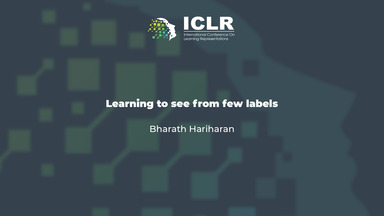Deep Encoder, Shallow Decoder: Reevaluating Non-autoregressive MT
Mai 3, 2021
Sprecher:innen
Jungo Kasai
Sprecher:in · 0 Follower:innen
Nikolaos Pappas
Sprecher:in · 1 Follower:in
James Cross
Sprecher:in · 0 Follower:innen
Noah A. Smith
Sprecher:in · 2 Follower:innen
Über
During the recent years, much effort has been invested in non-autoregressive neural machine translation, which appears to be an efficient alternative to state-of-the-art autoregressive machine translation on modern GPUs. In contrast to the latter where generation is sequential, the former allows generation to be parallelized across target token positions. Non-autoregressive machine translation provides a tradeoff between translation quality and inference speed, but some of the latest models have achieved impressive tradeoffs compared to autoregressive baselines. In this work, we reexamine this tradeoff and argue that autoregressive baselines can be substantially sped up without loss in accuracy. Specifically, we study autoregressive models with encoders and decoders of varied depths. Our extensive experiments show that given a sufficiently deep encoder, a single-layer autoregressive decoder can substantially outperform strong non-autoregressive models with comparable inference speed. We show that the speed disadvantage for autoregressive baselines compared to non-autoregressive methods has been overestimated in three aspects: suboptimal layer allocation, insufficient speed measurement, and lack of knowledge distillation. Our results establish a new protocol for future research toward fast, accurate machine translation.During the recent years, much effort has been invested in non-autoregressive neural machine translation, which appears to be an efficient alternative to state-of-the-art autoregressive machine translation on modern GPUs. In contrast to the latter where generation is sequential, the former allows generation to be parallelized across target token positions. Non-autoregressive machine translation provides a tradeoff between translation quality and inference speed, but some of the latest models have…
Kategorien
KI und Datenwissenschaft
Kategorie · 10,8k Präsentationen
Über ICLR 2021
The International Conference on Learning Representations (ICLR) is the premier gathering of professionals dedicated to the advancement of the branch of artificial intelligence called representation learning, but generally referred to as deep learning. ICLR is globally renowned for presenting and publishing cutting-edge research on all aspects of deep learning used in the fields of artificial intelligence, statistics and data science, as well as important application areas such as machine vision, computational biology, speech recognition, text understanding, gaming, and robotics.
Gefällt euch das Format? Vertraut auf SlidesLive, um euer nächstes Event festzuhalten!
Professionelle Aufzeichnung und Livestreaming – weltweit.
Freigeben
Empfohlene Videos
Präsentationen, deren Thema, Kategorie oder Sprecher:in ähnlich sind
Economic Hyperparameter Optimization With Blended Search Strategy
Später ansehen
Chi Wang, …





